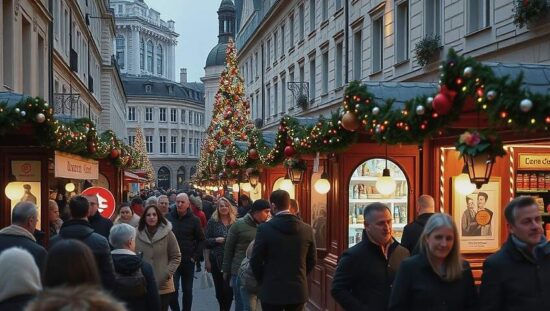The city of Magdeburg has temporarily halted approval for its annual Christmas market following a specially convened city council meeting Monday evening. The decision, announced by Mayor Simone Borris, stems from a directive issued by the State Administrative Office (Landesverwaltungsamt) that raises serious concerns regarding the market’s security concept.
The Administrative Office’s assessment, which has sparked considerable political debate, labels the Christmas market as a “potential target for an attack”. While Mayor Borris acknowledged the gravity of this statement, she expressed skepticism regarding the revised threat evaluation, highlighting what she perceived as a sudden shift in perspective. Crucially, she pointed to a recent written confirmation from the police, dated only last Friday, explicitly stating that countering specific dangers is a responsibility of the state. This revelation fuels speculation of political pressure influencing the security assessment.
Beyond the core vulnerability assessment, the Administrative Office is also critical of the proposed entry management protocols and access controls. While the Christmas Market Association has indicated a willingness to incorporate many of the suggested improvements, a point of contention arises concerning the assumption of liability for potential terrorist incidents. The Association steadfastly refuses to accept blanket responsibility for such events, creating a legal and practical impasse.
The development raises broader questions about the balance between public safety, economic viability and the potential for overreach in security measures. Critics argue that the stringent requirements effectively place an unsustainable burden on event organizers and risk creating a chilling effect on public gatherings. The incident underscores the ongoing challenge of managing security threats in the wake of recent global events, while also triggering a vigorous discussion about the scope of state responsibility and the rights of private entities. Mayor Borris remains cautiously optimistic that further discussions with the state government of Saxony-Anhalt may yet yield a resolution, but the future of this cherished annual tradition remains uncertain.





